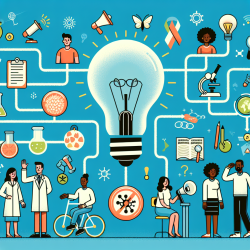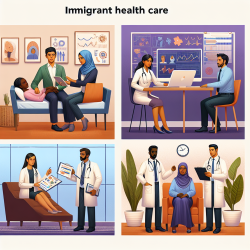In the ever-evolving world of biomedical research, the quest for meaningful scientific advancements often hinges on effective communication and collaboration between researchers and those who use their findings. The concept of Integrated Knowledge Translation (IKT) offers a promising pathway to bridge this gap, as exemplified by the GET-FACTS study on food allergies.
Understanding Integrated Knowledge Translation
Integrated Knowledge Translation is a model that emphasizes active collaboration between researchers and knowledge-users throughout the research process. Rather than being passive recipients of information, knowledge-users become integral partners in shaping research agendas, methodologies, and dissemination strategies. This approach ensures that scientific inquiries are not only relevant but also actionable.
The GET-FACTS Study: A Case in Point
The GET-FACTS (Genetics, Environment, and Therapies: Food Allergy Clinical Tolerance Studies) project is a pioneering initiative that embodies the principles of IKT. By involving representatives from Canadian food allergy policy and advocacy organizations as steering committee members, GET-FACTS aims to address critical questions about food allergy origins and treatments with direct input from those affected by these issues.
Key Findings from the GET-FACTS Study
- Equal Responsibility: Both scientists and knowledge-users are seen as equally responsible for translating knowledge into action.
- Improved Communication: The IKT model is expected to enhance scientists' communication skills, making their findings more accessible and relevant.
- Challenges of Integration: Unifying diverse communities such as policy advocates and biomedical scientists poses challenges but holds potential for paradigm shifts in research practices.
The Path Forward: Implementing IKT in Practice
For practitioners looking to improve their skills through IKT, consider these steps:
- Engage Early: Involve knowledge-users from the outset of your research projects to ensure their perspectives shape your inquiries.
- Foster Open Communication: Develop channels for ongoing dialogue between researchers and knowledge-users to facilitate mutual understanding.
- Create Collaborative Frameworks: Establish formal structures like steering committees to guide research priorities and dissemination efforts collaboratively.
- Measure Impact: Regularly assess the effectiveness of your IKT efforts through feedback loops and performance metrics.
The journey toward effective Integrated Knowledge Translation requires dedication and adaptability. By embracing this collaborative approach, practitioners can transform their research into actionable insights that directly benefit society.
To read the original research paper, please follow this link: Exploring knowledge-user experiences in integrated knowledge translation: a biomedical investigation of the causes and consequences of food allergy.










